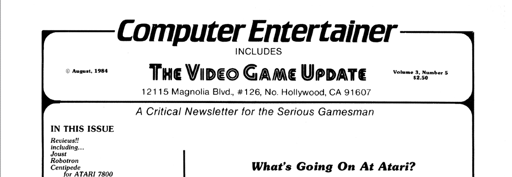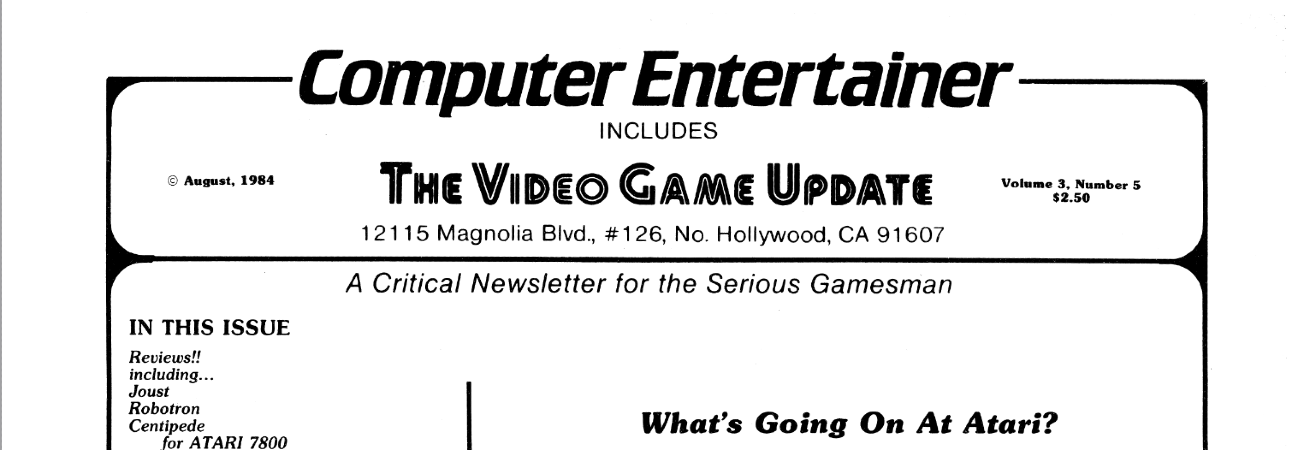
Some of the first reviews ever written for the original Legend of Zelda and Super Mario Bros. have been digitized and published by the Video Game History Foundation. The reviews appeared in Computer Entertainer, an early video game magazine that ran from 1982 to 1990. The archivists at the Foundation tracked down the magazine’s entire run and have published it all online under a Creative Commons license.
Computer Entertainer has a fascinating history. It was one of the only magazines to cover video games during the market crash of the mid 1980s. “Simply put, there weren’t other video game magazines in this era, at least in the United States,” Phil Salvador, the Library Director at the VGHF, told 404 Media. “In many cases, this is the only American coverage we have for this period.”
“If we want to understand video game history, we need more than the games themselves. We need to understand how they were talked about and how they were made. Primary sources from the early years of the video game industry like Computer Entertainer are scarce. They give us insight into the story of video games that there’s no way to reproduce,” Salvador said.
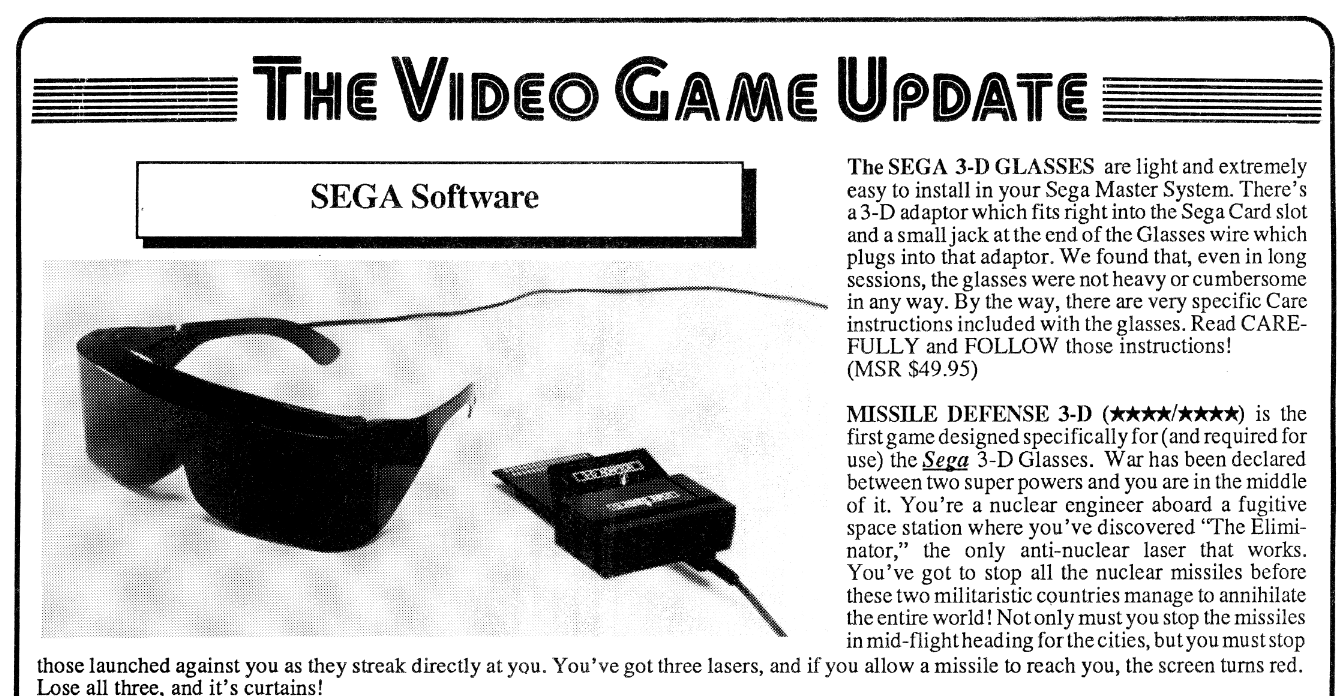 Image via VGHF.
Image via VGHF.
Computer Entertainer was the newsletter for the Video Take-Out, a company that sold video games through the mail. “Because they were focused on retail products, they kept on top of the video game release calendar in a way that no other enthusiast magazine did in the 1980s,” Salvador said. “This magazine is one of the only reliable sources of American release dates for computer and console games during this era. Look up any console game from the 1980s on Wikipedia, and chances are, the American release date in the article comes from Computer Entertainer.”
Digging through the archives, I found the original Legend of Zelda review and read through a year’s worth of hype and handwringing leading up to its release. Computer Entertainer was on hand at CES to talk to the unproven Nintendo in February 1987. Zelda was already out in Japan, where it ran on the disk-based Famicom system.
The CE write-up noted that the NES was a cartridge system and that Nintendo had to make unheard of adjustments to make the game work right. “A Nintendo spokesperson told us that they have included a lithium battery with a 5-year life span in the cartridge to allow it to save information you need, so the disk drive is not needed,” CE wrote.
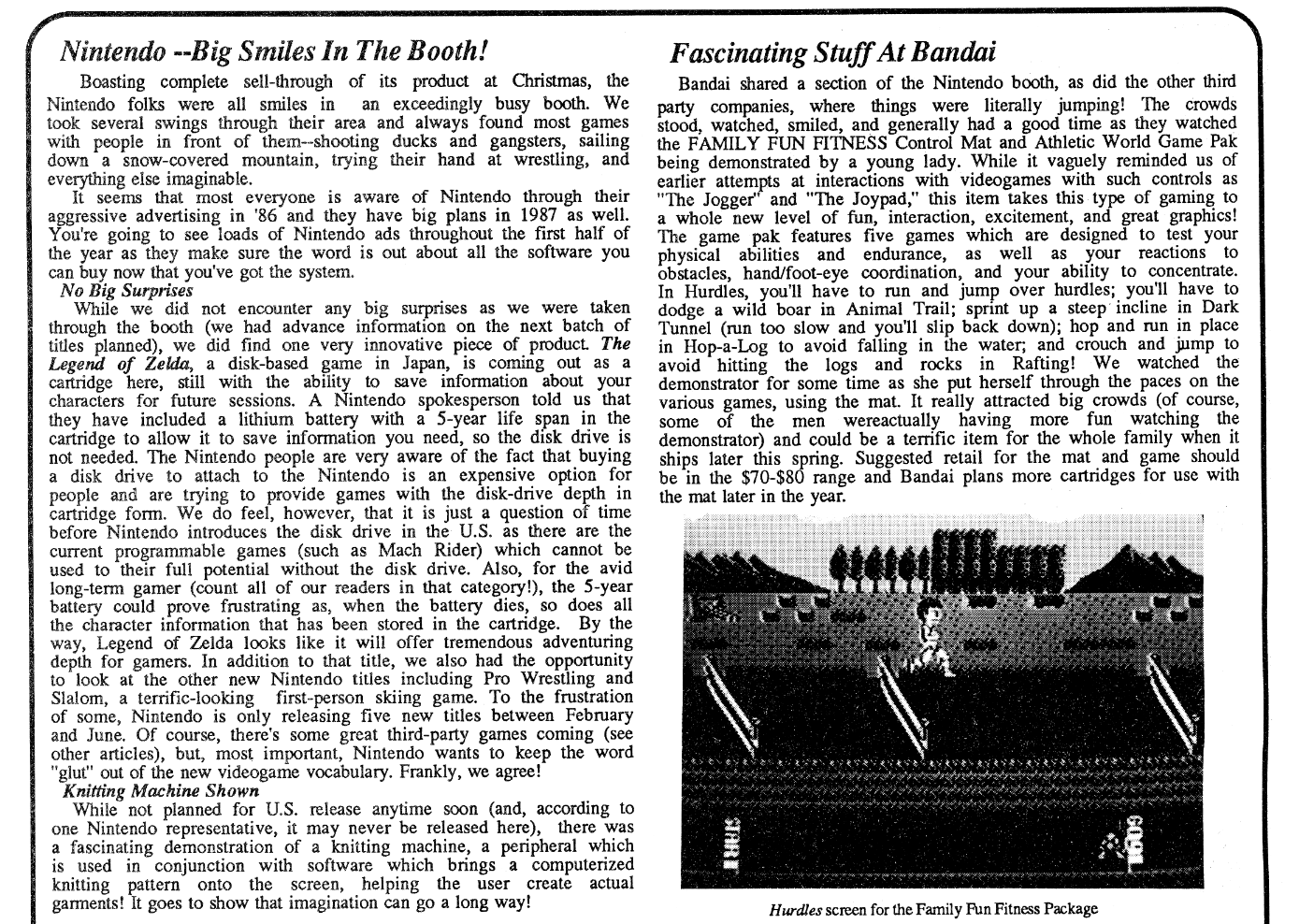 Image via VGHF.
Image via VGHF.
Convincing Americans to buy a Famicom-style disk drive after they’d already bought the NES was thought to be a hard sell. “We do feel, however, that it is just a question of time before Nintendo introduces the disk drive in the U.S,” CE said. “Also, for the avid long-term gamer (count all our raiders in that category!), the 5-year battery could prove frustrating as, when the battery dies, so does all the character information that has been stored on the cartridge.” CE needn’t have worried. Many of those batteries are still working today, almost 40 years later, and there’s a robust aftermarket in replacement parts when they fail.
Legend of Zelda finally came out in August of 1987 and CE gave it a glowing review, rating it 3.5 out of 4 stars. In the same issue, it gave Leisure Suit Larry and the Land of the Lounge Lizards a perfect 4 out of 4 stars. “There’s certainly no socially redeeming value to the game, which is what makes it so much fun,” CE said of the adventure game that would have nowhere near the cultural or social impact of Link and Zelda.
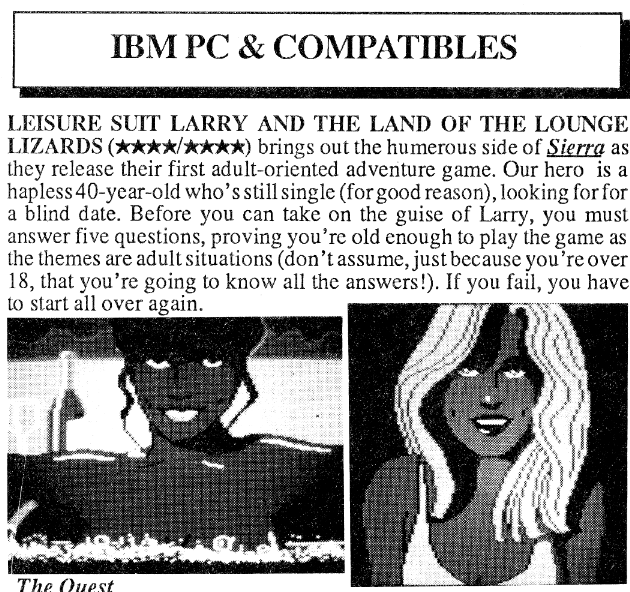 Image via VGHF.
Image via VGHF.
“It’s a totally different perspective to see someone trying to wrap their head around the original Super Mario Bros., or expressing skepticism about the idea of Nintendo selling a game console in the United States,” Salvador said.
The 1980s was a different era of games writing. “[Computer Entertainer] covered video and computer games as a function of their retail business to help customers better understand the game market,” Salvador said. “Being able to look back on what retailers thought about the game business back in the 1980s is a huge historical boon, but today, there’s understandably more questions about the role of game criticism. Does it still make sense to cover games the same way Computer Entertainer did 40 years ago?”
From 404 Media via this RSS feed


